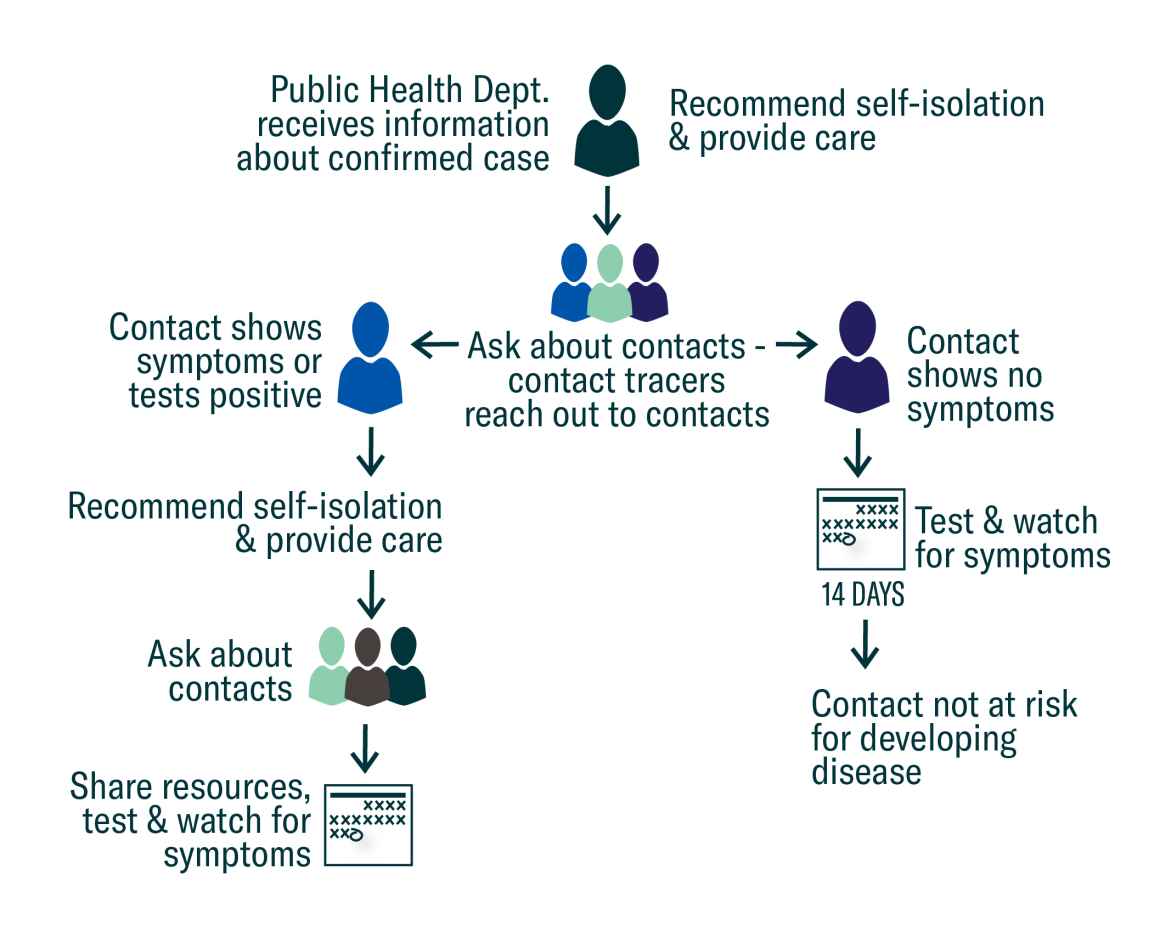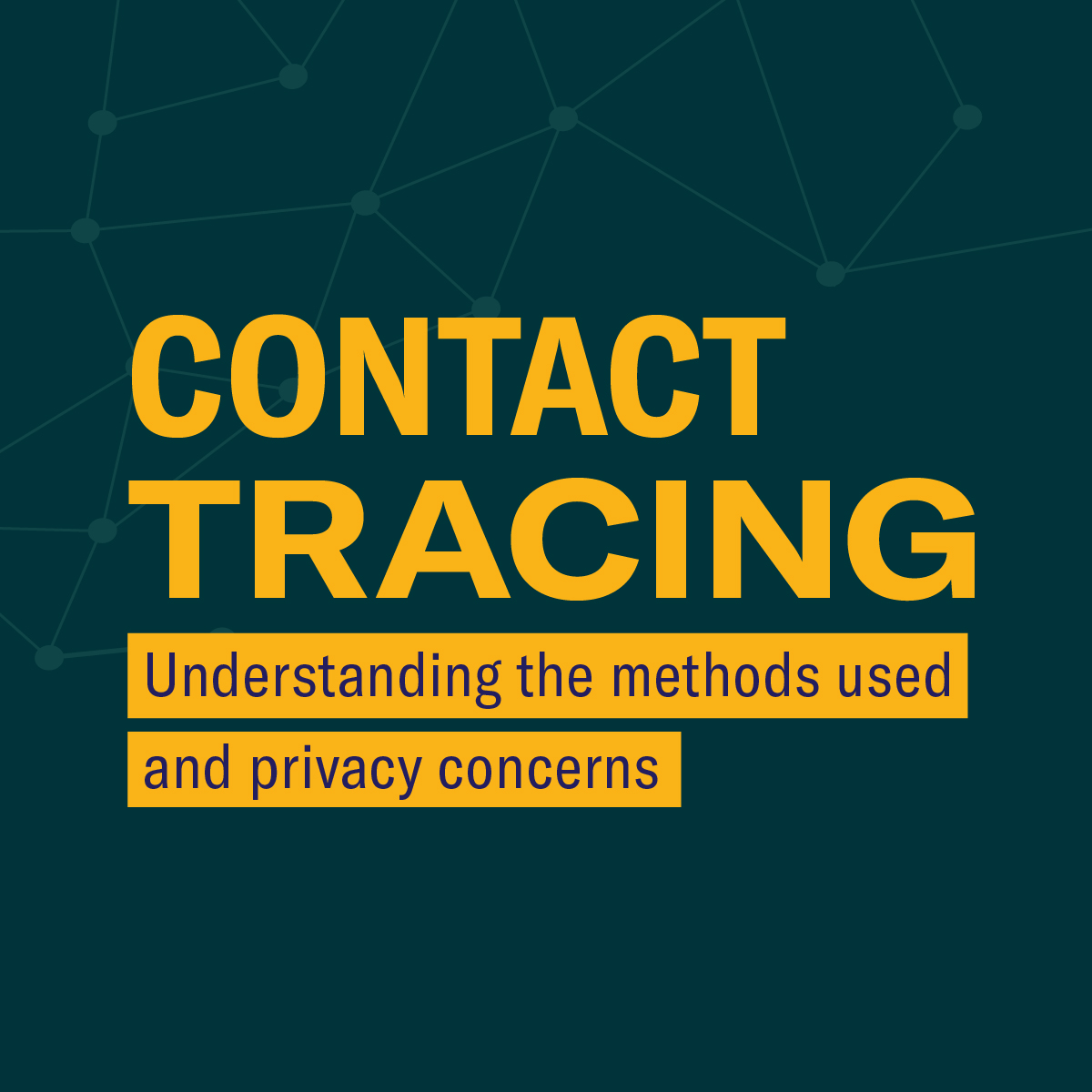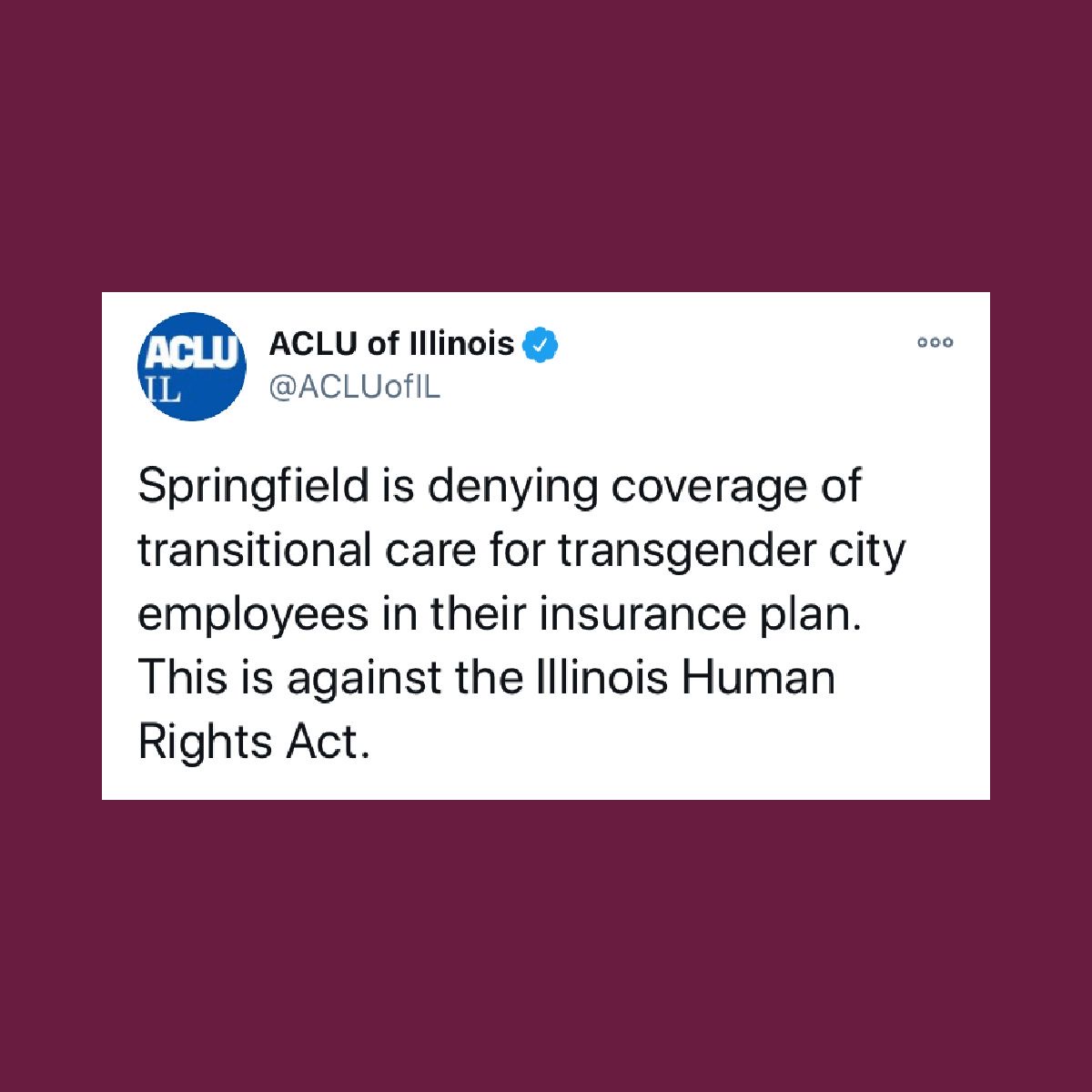What is Contact Tracing?
Contact Tracing works backwards from someone testing positive for COVID-19 to identify anyone they may have come in contact with, possibly exposing them to the disease.
Why is it important?
Contact Tracing is a public health tool that can help slow down the spread of COVID-19 by warning people if they’ve been exposed, even if they aren’t showing any symptoms.
Even though the tool offers public health benefits, it may also cause significant risks to civil rights and liberties.
How does it work?
There are a couple of different ways for contact tracing to work. One is known as the manual approach and the others are called tech assisted contact tracing models (TACT).
Manual Contact Tracing |
 |
Tech-Assisted Contact Tracing
TACT models go through the same steps as a manual approach - except this time with a smart phone instead of human callers. There are two categories of TACT models based on the type of data collected:
Location-Based Contact Tracing |
Proximity-Based Contact Tracing |
|
|
Will I need to download an app?
Right now, the state is rolling out a voluntary manual contact tracing process. But that doesn’t mean a tech approach won’t be adopted in the future.
Your work and school may also have different requirements. If you are asked to download an app, ask questions to help figure out how it may impact your privacy rights.
What happens to my information?
Since contact tracing is a public health tool, any information collected during the process should only be used for public health purposes. It should never make its way into the hands of another government agency.
What does contact tracing have to do with your rights?
The process of contact tracing relies on collecting your personal information in order to determine where you've been and who you may have exposed. Since contact tracers need to know if you've tested positive or are showing symptoms, your medical information is also being shared.
You have privacy rights attached to all of this data, making it sensitive and valuable. Any entity, including the government, must respect those rights.
How can my privacy be protected during contact tracing?
All contact tracing models should be developed and implemented with a privacy-first approach. This means that protecting your privacy needs to be a top priority when an entity is considering the use of contact tracing. The information collected should be:
- minimal
- never shared with anyone else
- only used for the limited purpose of slowing down the spread of COVID-19
What if I have more questions?
For public health questions visit: www.dph.illinois.gov/covid19/contact-tracing
For ways to protect your privacy: https://www.aclu-il.org/en/campaigns/protecting-privacy-during-covid-19
Interested in a training? Email acluofillinois@aclu-il.org
Date
Wednesday, December 9, 2020 - 5:30pmFeatured image


